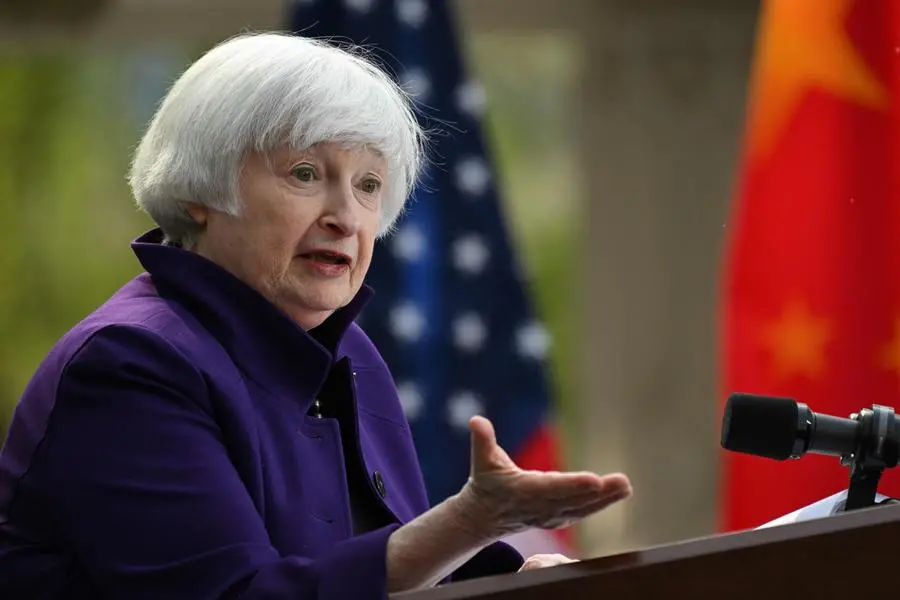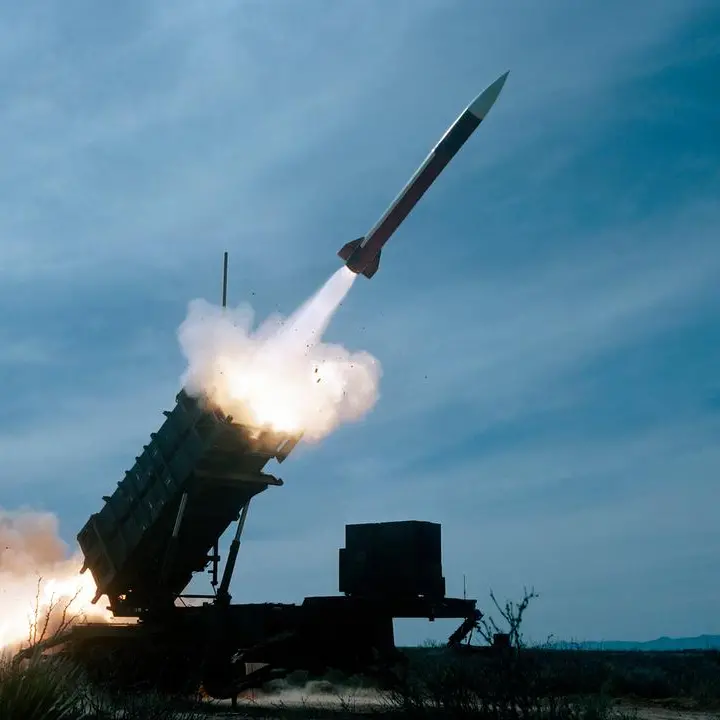PHOTO
From her down-to-earth demeanour to chopstick skills, US Treasury Secretary Janet Yellen has been under scrutiny on her China visit, where she delivered a serious message -- a call to action to avoid the pitfalls of excess factory capacity.
Washington and others are worried that overcapacity, fuelled by Chinese government support, could unleash a surge of Chinese exports at artificially low prices, disadvantaging firms elsewhere in new industries like electric vehicles and solar energy.
But Beijing has pushed back against such warnings, with a minister calling them "groundless".
Business leaders see Yellen's visit as one aimed at exploring solutions with counterparts, while analysts warn it could pave the way towards action like tariffs.
For now, Yellen said the concerns "will not be resolved in a week or a month".
Her arrival in Guangzhou generated buzz, with social media users taking note of how she carried her own bags down from the plane to greet Chinese officials.
Attention then turned to her meals, with US policymaker spotted at a popular Guangzhou dimsum eatery, and a restaurant featuring food from the southwestern Sichuan province.
But beyond quipping about her chopstick use, her meetings struck a sombre tone as she warned that China's industrial subsidies could risk "global economic dislocation".
- Avoiding a spiral -
"It's important that governments have these discussions before they take on a life of their own, spin out of control and things get into a negative spiral," said Jens Eskelund, president of the European Union Chamber of Commerce in China.
But he told AFP it may be "too optimistic" to hope for a quick solution.
Politically encouraged growth in industrial output can become a "zero-sum game" with low demand growth in China and around the world, if this replaces domestic production and jobs in other economies, he said.
Washington and Beijing have agreed to talks on "macroeconomic imbalances" to discuss overcapacity, and Eskelund said similar discussions should also take place in an EU-China context.
It is also important to let Beijing know that the US and allies recognise excess capacity could be a problem, said Sean Stein, chair of the American Chamber of Commerce in China.
"If it later becomes necessary to take actions to blunt a surge of Chinese exports, the Chinese can't say they weren't warned," Stein said.
- Personal ties -
Stein called Yellen the best bet in helping to move the needle on China's policy and persuasively make the argument for reform -- particularly on business and economic issues.
"The Chinese see Yellen approaching issues as an economist, not a politician," he said.
The cultivation of personal ties between Yellen and her counterpart He Lifeng, China's top official overseeing economic and financial policy, is another factor.
By far, her longest engagements on the trip were with He. From group meetings to a boat tour, they spent over 11 hours discussing everything from their respective economies to concerns about national security actions.
Every major US-China problem to be solved or effectively managed over the past 45 years has been handled by senior officials who "built personal relationships and developed understanding of each other's requirements and limitations", said Brookings senior fellow Ryan Hass.
- 'A broader strategy' -
Yellen's trip is not designed to produce "headline outcomes", Hass told AFP.
"It is a piece of a broader strategy" towards cooperation in areas like illicit finance and climate finance while also explaining President Joe Biden's moves to protect US national security, he added.
The visit reflects the Biden administration's efforts to manage ties diplomatically, Hass said, with many American voters supporting high-level talks with China.
But a potential outcome is "more tariffs, or at least investigations that could pave the way for more tariffs", said Ilaria Mazzocco, a senior fellow at the Center for Strategic and International Studies.
Given common ground between the United States and Europe on excess capacity, there could be talks of joint responses ahead, she said.
"For now it looks like the government's solution is to encourage companies, at least in the battery and EV sector, to make more investments in production facilities outside of China as a way of mitigating tensions," Mazzocco said.
But this may not be enough to solve problems with Washington.
While a US presidential election is on the horizon, Asia Society Policy Institute managing director Rorry Daniels expects Chinese action on US demands is not necessarily dependent on the result.
"A lot can be done to address US concerns on excess industrial capacity and debt restructuring for either a second Biden or second Trump term," she said.





















